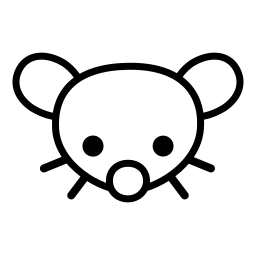This is among the kind of “steps back” that is so tiresome; people who are deeply unserious about power and think they can somehow beat power by doing mental gymnastics to tell themselves that their form of power is not actually power, that they are “pure” and “unmarred” by power because they don’t seek to use a formally defined state administration to do organized work. End result is you get conscientious people who avoid positions of power out of a sense of moral ickiness and leave them more so to those with less scruples, which will have very predictably bad outcomes. 🤦♂️
- 1 Post
- 9 Comments

 11·2 days ago
11·2 days ago“How dare they use the kind of rhetoric against Britain that Britain has been using against other countries for hundreds of years!”

 12·2 days ago
12·2 days agoI’ve seen a lot of copaganda cause of the “murder mystery” / detective interest someone I know has. And it is insidious, like someone else said. You have these shows like Monk, Diagnosis Murder, Psych, Perry Mason, and they often follow this general pattern of “somebody who is working outside the law and/or stretching it a bit because the law doesn’t do enough.”
There’s a very particular technique that these kind of shows often use: The audience sees the murder happen.
This sets the stage for the audience 1) being on the side of the protagonists, no matter how they go about things and 2) believing a crime happened and happened more or less as the protagonists come to suspect (because you saw it).
But in real life, no such thing happens. If there was evidence that direct, you wouldn’t need much of an investigation. It’s almost never going to be the case in real life that it’s so straightforward. And if it’s not, that means much of what people do in these shows unravels quickly.
And you can see this reflected in the way some people think about a concept like “due process” in real life, where a personal belief that somebody did wrong means not only that they must have, but that no investigation is needed. Or if an investigation is done, it should be as intrusive and browbeating as necessary to “force the truth out of them.” In reality, this is not only unnecessary, but could create false positives if you hurt someone badly enough that they fake a confession just to make it stop.
But anyway, I focus on that technique about how these shows start because I think it’s important in how this sort of thing becomes warped. If you truly believe that someone has done absolutely horrible things, you may be more apt to go outside the law yourself, in order to stop them, or at least sympathize with someone who is trying to. I guess what I’m touching on here is the nature of atrocity propaganda.

 8·5 days ago
8·5 days agoSounds very similar to what zionists are known for with the victim complex. Makes me wonder if Fox News uses much the same tactics as israel (or rather, if israel uses much the same tactics as Fox News - since the likelihood would be that israel learned from US white supremacy, much like how Nazi Germany learned from Jim Crow laws).

 6·6 days ago
6·6 days agoyou are arguing my point for me.
Except I’m not. Belgium isn’t banning American flags here, nor tackling their own systemic problems of white supremacy and support for imperialism with a rule like this. They are reinforcing the position of white chauvinist moral authority over non-white people. It is precisely part of the colonial and imperial dynamic that says “this group over here is savages and is incapable of self-determining as a people how to behave.”
As for your attempt to distinguish culture and ideology, they are often intertwined and it’s not so simple in practice that you can just target the one without targeting the other. I’m quite sure you haven’t talked to the Muslims in that area and found out the reasons they wear a head scarf. As far as I can tell, your line of reasoning goes something like: “Religion always bad -> This is 100% a symbol of participation in organized religion and can’t mean anything else, or beyond that -> Therefore, banning it cannot be anything but good.” This is nonsense though. I am not personally a fan of organized religion, but when I came to understand views about imperialism and communism and so on, it became important for me to look at it with a broader lens. Take the Palestinian cause, for example. It would be tantamount to siding with zionists to focus on Hamas not being secular while they are sacrificing their lives trying to survive a genocide and to side with colonizer talking points against Hamas because of any religiosity they have. Palestinians who are directly involved in the struggle can contend with that, but as an outsiders, it is foolish for us to try to judge from an ivory tower.
This kind of ivory tower judging is how people arrive at “ultra-left” stances that are inadvertently aligned with the western empire, instead of in opposition to it. You don’t have to like Islam to understand that Belgium is a part of the white supremacist, imperialist order and that when they target Muslims in a way like this, it has nothing to do with liberating people from an oppressive ideology and everything to do with treating them as lesser and exercising control over them as a people. They aren’t saving women, they are subverting self-determination.

 2·7 days ago
2·7 days agoOn what grounds do you claim that a head scarf is a universal symbol of destruction? Don’t answer that, you don’t have grounds and you’d just give an Islamophobic spew if you tried.
Could you imagine if Belgium was like “we’re banning cowboy hats because they’re associated with Yankees and the Yankees have been historical terrorists.” That’d at least make more sense than this because the terror done by the US is much more real than any terror ascribed to modern Islam - and in fact some of the actual terror coming from Muslims in recent history is fomented by the US in the first place. But somehow I doubt you’d think it’s reasonable, regardless.
When you put this in context, yeah, that thing you were being rude about others supposedly not doing, it’s just white supremacy vilifying the non-white person again, under the guise of the non-white person ascribing to a “bad ideology”, while ignoring the fundamentally oppressive power dynamic and the galling hypocrisy of pretending to care about “extremism” while the institution of white supremacy continues to treat the world like a punching bag, coin purse, and beachfront property.

 4·10 days ago
4·10 days agoAlso, for further RL comparison, even the best standup comics sometimes lose patience with, and go off on, hecklers. So it’s not like this is something exclusive to the virtual world. People don’t really like being booed.

 81·10 days ago
81·10 days agoThis is a misunderstanding of why downvotes can bother people. I will try to put it in perspective with an analogy: Imagine if in RL, you were trying to talk casually with an acquaintance in public. Suddenly, you hear a “boo, [your name].” The boo explicitly uses your full name, not a shortened name, so for the sake of analogy, you know it was directed at you. However, you have no idea who said it or why. All you know is there was a “boo” targeted at you.
It is just negative noise, divorced from any grounding. Not unlike the psychology of a scary sound in a horror movie, it leaves your imagination to fill in the blanks as to why the noise happened. There can be many explanations for the noise, some of which will have nothing to do with you, personally. But the nature of it is still presented as if it is about you, targeted at you.
In my understanding, a criticism is usually considered to be something specific that you can engage with. For example, if you yelled at the acquaintance and they said “don’t yell at me over nothing, we were just talking.” That is a criticism and something you could take action based on. You could reflect on whether you were needlessly yelling and if you think you were, you could apologize and try to be more calm in the future. The noise, on the other hand, doesn’t tell you anything clear. So, do you really need to know? What purpose is it serving?
The spirit of it I suspect comes in some part from the real life forum inspiration of internet forums, where the idea is you are discussing things publicly and openly in front of an audience, and so you might get cheers or jeers. But in practice, this is not really how the internet works. You don’t know who is looking attentively at you and who is not even present. You don’t know who is “cheering” or “jeering” at what point in what you said and because you don’t have any chance of knowing who it is, you can only guess why. The amount of information a downvote gives is virtually nothing, despite what anyone wants to tell themself about adapting their posts because of it; and you can see this reflected in how people react sometimes when they get heavily downvoted. They can get defensive, but in a sort of flailing way, like they’re trying to work out what the hell is going on. Because they haven’t actually been told what the problem is supposed to be. All they have is noise, their imagination, and whatever coping mechanisms they have for dealing with the noise. In this sense, downvotes can be more like a cowardly (in that it is usually anonymous) taunt than actual information. This is not to claim the intent is always or even often a taunt - remember, the point here is you know basically nothing from it - but that the nature of its low information is easily experienced as more akin to a taunt, since there is nothing substantive you can do with it.
I mean yeah. It’s a good bubble to be in, if one is going to have to be in a bubble, but there is a lot of reactionary bullshit out there…
It’s weird to be aware and to be trying to do something about it, and also live within that stuff. Reminds of the following line from when I was trying to read through: https://en.prolewiki.org/wiki/Library:No_Free_Left
(bold emphasis mine)
And I would add, unlike the concept of a cult and other formations that emphasize a sense of superiority as a justification for being outside the norm, communism has no such mental buffer exactly? Instead, there is I think more of a humbling going on and an uncovering of scientific ruggedness in existence that might otherwise be more softened or hidden by fanciful ideologies of elitism and false promises. It is like you are seeing the raw nerve endings of society and watching as a steady diet of fast food is paved over with running a lot (figuratively speaking). But you can’t simply pretend you exist outside it and act from a safe vantage point. You’re in it even as you try to change it and are awash in its influences on you.
Idk if that makes sense, but I’m trying to get at something that is hard for me to put into words.